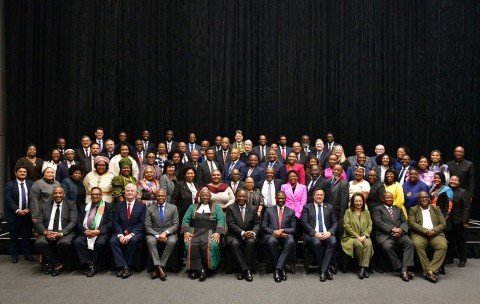Lifestyle Audits for Ramaphosa's Cabinet: A Long-Awaited Promise, But Will Results Be Public?

Ramaphosa's Ministers to Undergo Lifestyle Audits – Finally!
Johannesburg – After years of promises and delays, South African President Cyril Ramaphosa and his executive team have officially agreed to undergo lifestyle audits during the current financial year. This long-awaited commitment, initially pledged back in 2018, aims to address concerns surrounding potential conflicts of interest and promote transparency within the government.
The decision comes amidst growing public scrutiny and calls for greater accountability from political leaders. The South African public has been increasingly vocal about the need to ensure that those in power are held to the highest ethical standards. These audits represent a significant step in that direction, demonstrating a willingness, at least on the surface, to address these concerns.
What Will the Audits Involve?
While details regarding the scope and methodology of the audits remain somewhat vague, it's understood that they will involve a thorough examination of ministers' assets, liabilities, and financial dealings. Independent auditors will be tasked with verifying the accuracy of declarations made by cabinet members and identifying any potential irregularities. The audits are expected to cover a period spanning several years, providing a comprehensive overview of their financial history.
A Catch: Public Disclosure Remains Uncertain
However, a significant point of contention remains: the public disclosure of the audit results. Despite the welcome news of the audits themselves, the government has indicated that the findings will not be made public. This decision has already drawn criticism from civil society organizations and opposition parties, who argue that transparency is crucial for ensuring accountability and building public trust.
Critics contend that keeping the results confidential defeats the purpose of the audits, as it prevents the public from scrutinizing the findings and holding ministers accountable for any wrongdoing. They argue that a lack of transparency breeds suspicion and undermines the legitimacy of the government.
The Bigger Picture: Accountability and Good Governance
The implementation of these lifestyle audits, regardless of whether the results are made public, is part of a broader effort to strengthen governance and combat corruption in South Africa. The country has grappled with systemic corruption for years, which has eroded public trust and hindered economic development. Ramaphosa's administration has pledged to tackle corruption head-on, and these audits are seen as a key component of that strategy.
Ultimately, the success of these lifestyle audits will depend not only on their thoroughness but also on the government’s willingness to embrace transparency and accountability. The public deserves to know whether their leaders are upholding the highest ethical standards and serving the interests of the nation.
Looking Ahead
The coming months will be crucial in determining the effectiveness and impact of these lifestyle audits. The government faces a significant challenge in balancing the need for privacy with the public's right to know. The decision regarding public disclosure will undoubtedly shape public perception of the initiative and its overall contribution to good governance in South Africa.





